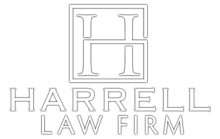What is Premise Liability?
Accidents can happen anywhere, and more often than not, they occur on someone else’s property. When an injury occurs due to unsafe conditions on another person’s premises, it may give rise to the legal concept called “premises liability.” This legal doctrine holds property owners and occupants responsible for injuries that occur due to negligence or unsafe conditions on their property. This article will explain the key elements of premises liability, common types of cases, and what you should do if you find yourself injured on someone else’s property.
What are the Elements of Premises Liability?
There are four elements that must be present in order to prove premise liability: the first being a duty of care. Property owners and occupants owe a duty of care to individuals who enter their premises. This duty includes maintaining the property in a reasonably safe condition and addressing potential hazards in a timely fashion. The duty of care is different depending why the injured person is on the property. To establish liability, it must be proven that the property owner or occupant breached their duty of care by failing to maintain a safe environment or by allowing dangerous conditions to become present. On top of this, there must be a direct link between the breach of duty and the injury suffered by the plaintiff. This is referred to as “causation”. In other words, it must be proven that the unsafe condition directly resulted in the injury. The injured party must have suffered actual damages, such as medical expenses, lost wages, pain, and suffering, as a result of the injury.
4 Common Types of Premises Liability Cases
- Slip and Fall Accidents: These occur when someone slips, trips, or falls due to hazardous conditions, such as wet floors, uneven surfaces, or inadequate lighting.
- Negligent Security: Property owners may be liable for injuries caused by criminal acts on their premises if they failed to provide adequate security measures.
- Defective Conditions: Injuries resulting from defects in the property, such as broken stairs, unstable handrails, or malfunctioning elevators, can lead to premises liability claims.
- Inadequate Maintenance: Failure to maintain the property properly, including routine inspections and repairs, can result in injuries and liability.
What to Do If You're Injured on Someone Else's Property
If you’re injured on someone else’s property, it is vital to acknowledge the following steps to protect your rights. First, your health and safety is the top priority. Seek immediate medical attention to ensure that your injuries are properly treated. Also, it is important to note that you cannot pursue a case without there being a proven injury, so getting medical attention as early as possible is crucial to your case.
Next, report the incident to the property owner, manager, or supervisor and request an incident report. If this happens on an individual’s property, it may be necessary for law enforcement to create an accident report. With this being said, gather and preserve as much evidence as you can. If possible, document the scene with photographs, video, and obtain witness information. Keep records of medical bills, receipts, and other documents related to your injury. This will become extremely important if you decide to file a claim against the negligent party.
If you’ve been injured on someone else’s property and legal action is the route you decide to take, the first thing you should do is consult with a knowledgeable attorney to help you fully understand your rights and pursue fair compensation. As mentioned above, the duty a property owner owes is dependent on the reason the injured person is on the property. A personal injury attorney experienced in premises liability cases can help evaluate your situation and guide you through the legal process. It is also important to avoid signing any documents or accept settlements without consulting your attorney, as you will likely not be offered the maximum compensation.

Leigh A. Raffauf
Partner, Harrell Injury Law

